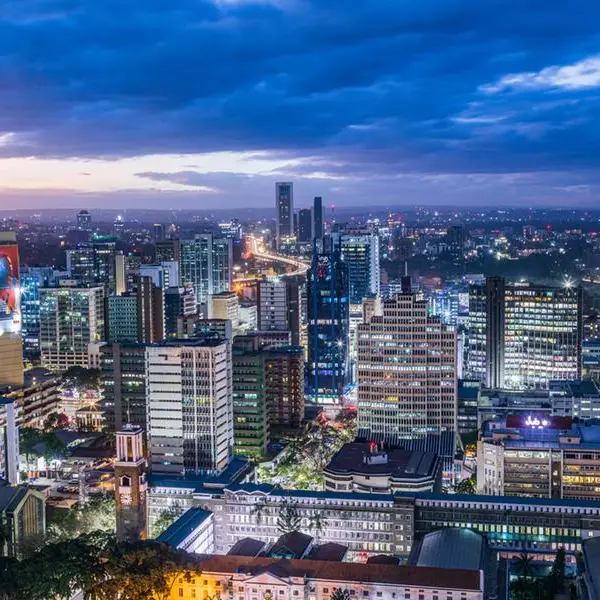PHOTO
George Carlin, the famous American standup comedian said - "Some people see the glass half full, others see it half empty. I see a glass that's twice as big as it needs to be."
Inspired by Carlin's quote, I remain hopeful despite the Covid19-led adversity. Never before has crisis hit humankind globally and across all strata of society, bringing the world to such an extended and grinding halt.
The Covid-19 pain gnaws at people's minds by the risk to life at one end and fear of losing livelihoods and savings on the other. Driven by a perpetual desire to grow and accumulate, humankind has created a fragile world which easily crumbles. With governments, corporates and households accumulating huge debt over the years, any onset of fear or panic causes economies to collapse and people to lose their jobs and life savings. Why is this happening so often in recent years?
The answer is simple! All economic crises are essentially man-made. Technically, in a Covid-19-type medical crisis, the concern should be limited to the risk to lives. However, the world is grappling with the accompanying risk to livelihood, which is human-made collateral damage. To decouple risk to humankind's survival from such repeated economic risks, we need to 'go-back-to- basics'.
The human race's obsession to building wealth has led to the use of excessive credit to produce more than is needed in every aspect of our lives. Unsustainable levels of 'financial leverage' are availed by businesses and households to artificially create both demand and supply. This has led to capacities far exceeding actual demand. This cannot sustain, just as froth in a freshly poured beer glass doesn't last for long. At the first onset of risk, fear rises, confidence erodes, and such artificially supported demand immediately starts to disappear.
Common sense dictates a simple solution of changing behaviour to produce only what is genuinely needed, and what is affordable without needing unusual levels of credit. However, age-old solutions of reduced interest rates or excessive monetary stimulus are recommended each time by self-serving lobbies to unnaturally support excesses. This perpetuates the problem by kicking the can down the road, allowing zombie enterprises to survive with increased future vulnerability.
According to neoclassical economic theory, businesses must maximise efficiency to succeed and generate profits and those who fail must perish. However, globally solutions do the reverse by protecting failed incumbents and, indirectly, increase risk by suppressing much-need disruption through the rise of new-age insurgent business models. Repeated bail-out solutions aimed at protecting unviable incumbents' during crises actually increases macro-vulnerabilities and contributes to slowing structural change, making subsequent economic crises more severe and frequent.
In the Covid-19 medical crisis, three things really matter. Firstly, how quickly can the virus be contained, with a priority to focus investment on research and support of health-care providers. Secondly, fundamentally sustainable businesses should be identified for capital & liquidity support to last the extended duration of disruption. Other wasteful capacity must be allowed to perish and scarce capital not wasted on them. Finally, fiscal stimulus must be sustainably redirected to provide for basic survival needs of those at the bottom of the pyramid while the affluent self-survive, since humans are the essential link between the macro and micro aspects of any economy. Till the vaccine is found, these elements should be focused on for minimum survival.
During crisis, the important consideration for society and humanity is to 'survive' and not aim to 'thrive'. Once, we have the vaccine, the focus on thriving can begin, as only then can confidence rebuild and behaviour start to normalise on consumption, travel, social interaction, new investing and hiring. We should keep our additional monetary and fiscal powder dry for then, for maximum effectiveness.
However, many refuse to accept such extreme possibilities! We naively compare the Covid-19 health crisis to past situations and look for similar solutions. However, this time we need to change behaviour, reshape expectations, and be willing to slow-down in the short-run to preserve essential societal elements, and build confidence for the longer-run. The traditional "silver bullets" will not suffice.
We must dare to allow technically bust businesses to fail and not wastefully direct bailout resources at them. This may sound insensitive, but we must not underestimate the need for a deep and radical structural cut and redistribution since the "Law of Nature" mandates that "the old makes way for the new". Such a bold approach will democratise opportunity, incentivise bright minds to create new sustainable insurgent business models that will drive structural disruption in line with evolving customer behaviour, and create real and sustainable growth.
When needed, nature has the power to overwhelm human endeavour and so we need to take an early cue. We must bite the bullet this time, else our world will keep becoming more vulnerable and our traditional tools to manage will get ineffective, till we reach the tipping point when damage is irreversible and the situation irretrievable!
Every crisis offers new opportunities for those with the right attitude, skills, and knowledge to adapt disrupt the status quo. Such "knowledgeable" minds" will be part of the new-normal and the upsides for them will be huge. The power to rule in the "new normal" lies within each one of us! We need to awaken and accept the pain, as without it there is no gain. Remember, the glass is twice as big!
The writer is founder of Dunia Finance, Global co-founder of Fullerton Financial Holdings and former Citibank Regional CEO of the Turkey-MEA region. Views expressed are his own and do not reflect the newspaper's policy.
Copyright © 2020 Khaleej Times. All Rights Reserved. Provided by SyndiGate Media Inc. (Syndigate.info).





















